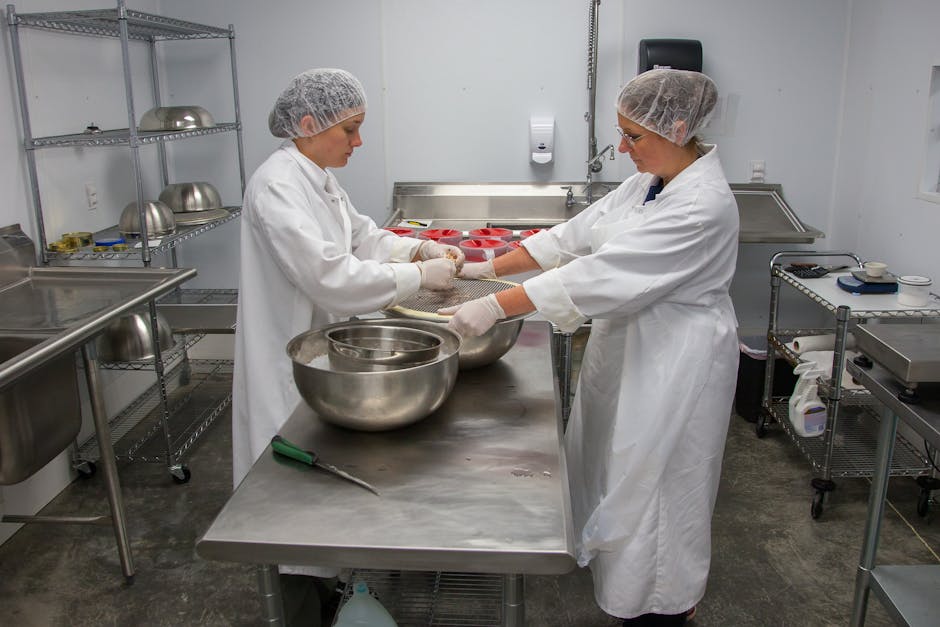Bulk Deployment of Hygiene Staff for GCC Weddings
Introduction: The New Standard of Wedding Excellence
Have you considered how post-pandemic expectations have permanently elevated hygiene standards at large gatherings? Consequently, GCC weddings now demand unprecedented levels of cleanliness and safety protocol enforcement. Specifically, the bulk deployment of hygiene staff for GCC weddings has transitioned from a luxury to an absolute necessity. Furthermore, this strategic approach ensures that grand celebrations maintain their splendor while guaranteeing guest well-being. This article will explore comprehensive strategies, operational frameworks, and implementation best practices. Ultimately, you will learn how to seamlessly integrate large-scale hygiene teams into your wedding planning process.
The Critical Need for Bulk Hygiene Staff at GCC Weddings
Gulf Cooperation Council weddings are renowned for their grandeur, extensive guest lists, and opulent venues. However, these very characteristics create unique challenges for maintaining hygiene standards. Additionally, cultural traditions often involve close interactions and shared dining experiences. Therefore, proactive hygiene management becomes not just important but essential. Moreover, implementing a bulk hygiene staff deployment strategy directly addresses these challenges systematically.
Why Traditional Cleaning Methods Fail for Large Weddings
Standard venue cleaning crews lack the specialized training for high-traffic event management. Meanwhile, wedding events have continuous contamination risks requiring constant attention. For example, food service areas, restrooms, and gathering spaces need simultaneous monitoring. Consequently, only a dedicated, large-scale team can effectively manage these dynamic environments.
Strategic Planning for Hygiene Staff Deployment
Effective bulk deployment for GCC weddings requires meticulous advance planning and coordination. First, conduct a comprehensive venue assessment to identify high-traffic zones and potential contamination points. Second, develop a staffing matrix that aligns with guest count, venue size, and event duration. Additionally, create detailed protocols for each team member’s responsibilities and coverage areas.
Key Deployment Zones for Wedding Hygiene Staff
- Guest Arrival Areas: Sanitization stations and welcome team hygiene management
- Dining and Food Service Zones: Continuous surface cleaning and buffet area monitoring
- Restroom Facilities: Dedicated attendants for constant maintenance and stocking
- Entertainment and Dancing Areas: Frequent cleaning of high-contact surfaces and equipment
- VIP and Elderly Guest Sections: Enhanced protection for vulnerable attendees
Operational Framework for Large-Scale Hygiene Teams
Implementing successful hygiene staff deployment requires structured operational systems. Specifically, establish clear command hierarchies with team leaders for each venue section. Furthermore, utilize technology for real-time communication and issue resolution. According to WHO health guidelines, structured hygiene protocols significantly reduce transmission risks at large events.
Staff Training and Protocol Standardization
All deployed staff must undergo comprehensive training on wedding-specific hygiene protocols. Meanwhile, standardize procedures across all team members to ensure consistent service delivery. Additionally, implement regular quality checks and performance monitoring throughout the event duration.
Technology Integration in Hygiene Management
Modern bulk deployment for weddings increasingly incorporates technological solutions. For instance, digital monitoring systems track cleaning frequency and coverage completeness. Similarly, communication devices enable rapid response to emerging cleanliness issues. Moreover, data analytics help optimize staff movement and resource allocation throughout the venue.
Essential Equipment for Wedding Hygiene Teams
- Hospital-grade disinfectant systems and electrostatic sprayers
- Portable hand sanitizing stations with monitoring capabilities
- Wireless communication devices for team coordination
- Personal protective equipment (PPE) meeting international standards
- Digital checklists and reporting tablets for documentation
Coordination with Wedding Planners and Venue Staff
Successful hygiene staff deployment for GCC weddings requires seamless integration with existing event teams. Initially, conduct joint planning sessions with wedding coordinators and venue management. Subsequently, establish clear communication channels and emergency response protocols. Furthermore, align hygiene operations with event timelines to minimize disruption to celebrations.
Timeline for Deployment Implementation
Typically, hygiene team deployment follows a phased approach. First, pre-event venue assessment and planning occur 4-6 weeks before the wedding. Second, staff training and protocol finalization happen 2-3 weeks prior. Finally, actual deployment begins 24 hours before the event for comprehensive venue preparation.
Cost Considerations and Budget Allocation
Implementing bulk hygiene staff deployment requires careful financial planning. However, the investment significantly enhances guest experience and safety perception. According to event industry research, comprehensive hygiene measures can increase perceived event quality by up to 40%.
Factors Influencing Deployment Costs
- Number of staff required based on guest count and venue size
- Specialized equipment and cleaning materials needed
- Training requirements and protocol development
- Event duration and complexity of services required
- Post-event reporting and documentation needs
Measuring Success and ROI of Hygiene Deployment
Evaluating the effectiveness of your hygiene staff deployment for GCC weddings is crucial for continuous improvement. Specifically, track key performance indicators such as guest satisfaction scores, incident reports, and protocol adherence rates. Additionally, monitor feedback specifically related to cleanliness and safety perceptions throughout the event.
Key Performance Indicators for Hygiene Teams
- Response time to cleanliness issues or spills
- Guest satisfaction with hygiene measures
- Reduction in cross-contamination incidents
- Compliance with scheduled cleaning protocols
- Staff efficiency and coverage effectiveness
Future Trends in Wedding Hygiene Management
The field of bulk deployment for hygiene staff continues evolving with technological advancements. For example, emerging disinfection technologies are transforming large-event cleanliness standards. Meanwhile, data-driven deployment optimization is becoming increasingly sophisticated. Furthermore, guest expectations continue rising, requiring ever more advanced solutions.
Innovations Shaping Future Deployments
Several emerging technologies promise to revolutionize wedding hygiene management. First, IoT-enabled cleaning equipment provides real-time monitoring and efficiency data. Second, AI-powered deployment optimization suggests ideal staff placement patterns. Third, advanced materials science creates more effective and environmentally friendly cleaning solutions.
Frequently Asked Questions
What is the ideal staff-to-guest ratio for hygiene deployment at GCC weddings?
Typically, we recommend one hygiene staff member per 50 guests for standard deployments. However, this ratio adjusts based on venue complexity, event duration, and specific risk factors.
How far in advance should we plan bulk hygiene staff deployment?
Ideally, begin planning 4-6 weeks before the event. This allows comprehensive venue assessment, protocol development, and staff training.
What training do hygiene staff receive for wedding events?
Staff undergo extensive training in wedding-specific protocols, discreet service delivery, emergency response, and cultural sensitivity for GCC weddings.
Can hygiene staff coordinate with our existing wedding planners?
Absolutely. Our teams seamlessly integrate with wedding planning teams, following established protocols while maintaining open communication throughout events.
What measures ensure discreet service delivery during ceremonies?
We employ specially trained staff who understand wedding dynamics. They use quiet equipment, subtle communication, and strategic timing to maintain cleanliness without disrupting celebrations.
How does bulk deployment differ from standard venue cleaning?
Unlike standard cleaning, bulk deployment provides proactive, continuous hygiene management specifically trained for high-traffic events with specialized equipment and protocols.
Conclusion: Elevating Wedding Experiences Through Strategic Hygiene Management
In conclusion, comprehensive bulk deployment of hygiene staff for GCC weddings represents the new gold standard in event excellence. Specifically, this approach ensures that celebrations maintain their joy and grandeur while prioritizing guest safety and comfort. Furthermore, implementing structured hygiene protocols demonstrates commitment to attendee well-being and event quality. Ultimately, the investment in professional hygiene management returns dividends through enhanced guest experience and peace of mind. Therefore, we encourage you to integrate these strategies into your wedding planning process. Contact our specialists today to discuss customized deployment solutions for your upcoming celebration.




